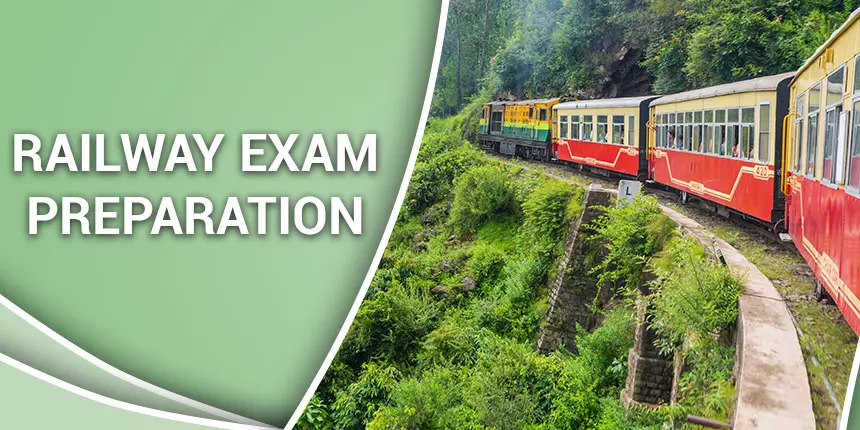Preparing for railway exams can be a challenging but rewarding journey. The Indian railway exams are a gateway to securing a career in one of the largest railway networks in the world.. Railway exams are among the most sought-after competitive exams in India. With numerous positions available in various departments, these exams offer a promising career with the Indian Railways. To prepare for such exams, one must be strategic, committed, and persistent in their efforts. This guide will walk you through the essential steps to prepare effectively for railway exams.
What are the Railway Exams?
Before diving into the preparation tips, it’s important to understand what railway exams are and their significance. Indian railway exams are conducted by the Railway Recruitment Board (RRB) to fill various positions in the railways, ranging from technical to non-technical roles. These exams are known for their rigorous selection process, which includes multiple stages such as preliminary exams, mains, and interviews.
Railway Eligibility Criteria
The first step in preparing for railway exams is to ensure you meet the railway eligibility criteria. The eligibility varies depending on the specific exam and position you are applying for. Generally, the criteria include age limits, educational qualifications, nationality, and sometimes physical fitness. It’s important to check these details in the Railway Exam Notifications published on the official RRB website or through trusted employment news portals.
- Age Limit: The age limit for most railway exams is between 18 to 33 years. However, age relaxations are provided for reserved categories as per government norms.
- Educational Qualifications: The educational qualifications required vary from a 10th pass to graduation, depending on the position. Some technical roles may require specific diplomas or degrees.
- Nationality: The applicant must be an Indian citizen. In some cases, candidates from neighboring countries like Nepal, Bhutan, and Tibetan refugees are also eligible.
Staying Updated with Railway Exam Notifications
One of the most critical aspects of preparing for railway exams is staying updated with the latest Railway Exam Notifications. The Railway Recruitment Board regularly releases notifications about upcoming exams, application deadlines, exam dates, and syllabus details. Regularly visiting the RRB’s official website or subscribing to alerts can ensure you don’t miss out on important updates.
Understanding the Exam Pattern and Syllabus
The Railway Recruitment Board Exam follows a specific pattern, generally consisting of a preliminary exam followed by a mains exam, and sometimes an interview or skill test, depending on the post. The syllabus can vary significantly across different posts, so it’s essential to download the latest syllabus from the RRB website. The railway exams typically consist of sections like General Awareness, Arithmetic, General Intelligence, and Technical Subjects (for technical posts). Here is a quick summary of the contents of each section:
- General Awareness: This section tests your knowledge of current affairs, general knowledge, and events of national and international importance.
- Arithmetic: This section covers basic mathematics, including topics like percentages, ratios, profit and loss, simple and compound interest, and time and distance.
- General Intelligence: This section assesses your logical reasoning and analytical skills through questions on puzzles, coding-decoding, and data interpretation.
- Technical Subjects: For technical posts, this section includes questions related to the specific technical knowledge required for the job.
Preparation Tips for Railway Exams
- Make a Study Plan: Good preparation requires a well-organized study plan. Allocate specific time slots for each subject and ensure you stick to the schedule. Include regular breaks to avoid burnout.
- Understand the Basics: Focus on understanding the basic concepts of each subject. This will help you tackle difficult questions more efficiently.
- Practice Regularly: Practice is key to success in railway exams. Solve previous years’ question papers and take mock tests regularly to get a feel of the exam pattern and improve your speed and accuracy.
- Stay Updated with Current Affairs: Make a habit of reading newspapers, watching news channels, and following reliable online portals to stay updated with current affairs.
- Use Quality Study Material: Choose the right study material and reference books that cover the entire syllabus comprehensively. Video tutorials and internet resources are also beneficial.
- Time management: During the exam, time management is crucial. Practice solving questions within the given time frame to enhance your time management skills.
Importance of Revision
To remember what you have studied, you must regularly revise your work. Make time in your study plan for editing. Revise important topics, formulas, and concepts frequently to keep them fresh in your memory. Using flashcards and summary notes can make revision more effective.
Taking Care of Your Health
Preparing for railway exams can be stressful, but it’s important to take care of your health. To stay in good physical and mental health, maintain a balanced diet, engage in regular exercise, and get enough sleep. Avoid excessive caffeine and take short breaks during study sessions to relax and rejuvenate.
Group Study and Discussion
Group study and discussions can be highly beneficial. Studying in groups allows you to share knowledge, clarify doubts, and learn from others’ perspectives. Participate in study groups or online forums where you can discuss important topics, share study materials, and motivate each other.
Also Read: UP Police Recruitment 2024
Exam Day Tips
- Arrive Early at the Exam Center: To save yourself from worrying at the last minute, get to the exam center well in advance of the reporting time.
- Carry Required Documents: Ensure you have all the necessary documents, such as an admit card, ID proof, and stationery items.
- Read Instructions Carefully: Carefully read the instructions on the question paper and follow them strictly.
- Manage Your Time: Allocate time to each section and avoid spending too much time on a single question. If a question becomes difficult for you to answer, go on and, if time allows, return to it later.
- Remain Calm and Concentrated: Throughout the exam, maintain your composure. Take deep breaths if you feel anxious and focus on one question at a time.
Conclusion
Preparing for railway exams requires a combination of dedication, strategic planning, and consistent effort. By understanding the railway eligibility criteria, staying updated with Railway Exam Notifications, following a structured study plan, and practicing regularly, you can enhance your chances of success in the Railway Recruitment Board Exam. Remember to take care of your health, stay positive, and keep persevering towards your goal. With the right approach, you can secure a promising career with the Indian Railways.
Frequently Asked Questions
Q.1 What are the eligibility criteria for the Indian railway exams?
The railway eligibility criteria vary depending on the specific post. Generally, they include age limits, educational qualifications ranging from high school to graduate degrees, and sometimes specific technical qualifications or physical fitness standards. Always check the official Railway Recruitment Board website for accurate details.
Q.2 How can I stay updated with Railway Exam Notifications?
To stay updated with Railway Exam Notifications, regularly visit the official website of the Railway Recruitment Board. Additionally, you can subscribe to job notification alerts and follow reputable job portals and forums that provide timely updates on government exams.
Q.3 What is the general structure of the Railway Recruitment Board Exam?
The Railway Recruitment Board Exam typically includes a preliminary exam followed by a mains exam. For certain posts, there may also be additional tests such as typing tests, aptitude tests, or interviews. The structure of the exam largely depends on the nature of the job position.
Q.4 How important is General Awareness in the railway exams?
General Awareness is an important section in most Indian railway exams. It assesses your knowledge of current affairs, basic science, and information related to railways, making it essential for scoring well. Regular reading of newspapers and periodicals is recommended to excel in this section.
Q.5 Are there specific books or materials recommended for preparing for railway exams?
Yes, there are specific books and study materials recommended for railway exam preparation. Apart from the NCERT textbooks for basics, candidates can refer to specialized guidebooks and practice papers available for railway exams. Online resources and tutorials specific to the Railway Recruitment Board Exam preparation can also be beneficial.

